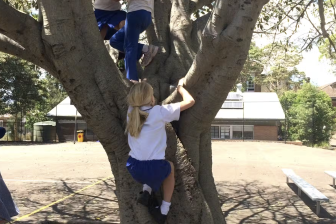
‘Time for change is now’ – government inquiry into children’s play freedoms hears face-to-face evidence
A UK government inquiry examining how better planning & design can improve children’s health has been told that ‘the time for change is now’.
Alice Ferguson, co-founder of Playing Out, is among several child rights-focused experts who gave personal testimony to a committee of MPs.
She said children’s freedom to ‘move around and play outside’ had been curtailed to the detriment of their health.
“It’s such a big opportunity to get them to sit up and take notice of what’s happened to children’s lives in this country, and to urge them to do something about it,” she said.
Alice is one of several experts who appeared at the Children, Young People and the Built Environment Inquiry which is being chaired by a group of cross-party MPs on The Levelling Up, Housing and Communities Committee.
‘A big opportunity to get them to sit up and take notice’
It is examining how improvements to planning and building & urban design processes in England could potentially improve not only the health and wellbeing of children and young people, but the wider population.
The inquiry is asking questions about how children and young people can use outside public spaces and move around their neighbourhoods, how they can be active and visibly part of their communities – be it their street, housing development, estate, town centre, village, public square or park. The roles that the government may have in making the built environment work in the best way possible will also be a key part of the inquiry.
A huge amount of written evidence has already been submitted to the inquiry from organisations and individuals, many of whom work with and on behalf of children. Today however is the opportunity for MPs to hear face-to-face from experts whose views and ideas could prove crucial going forward. They will also question witnesses on issues around child development and the importance of the ‘built environment’, plus the role of outdoor play.
Also appearing as witnesses were Gemma Hyde, Projects and Policy Manager at The Town and Country Planning Association; Harriet Grant, a freelance reporter specialising in human rights, immigration and migrant issues, and Helen Griffiths, Chief Executive of Fields in Trust.
Speaking before her appearance at the inquiry, Alice Ferguson told Child in the City: “There needs to be a turning point, and that needs to be now. Children have lost the everyday freedom to play and move around outside so insidiously that nobody has noticed until it’s too late.
The impact on their physical and mental health is drastic, especially for those who have least
Giving children back the chance to play outside where they live, by making local environments more child-friendly, could be transformative for public health and for society as a whole. We very much hope this inquiry is the start of making that happen.”
The academic community was represented by Dr William Bird, CEO of Intelligent Health; Professor Helen Dodd, Exeter University; Professor Alison Stenning, Newcastle University; and Dr Jennifer Wills Lamacq, University College London, also appearing.
The written evidence submissions cover a range of issues relating to child development and play, children’s equality of access to spaces, community benefits and concerns about children and young people’s presence in outdoor spaces and fears around anti-social behaviour.
Play Wales is one of those organisations that has provided some thought-provoking feedback to the inquiry, highlighting how changes in neighbourhoods such as increased use of cars and traffic in general, changing work patterns and parental restrictions based on fears of safety from traffic have all contributed to a reduction in opportunities for children ‘to realise their right to play’.
Involving young people in planning processes is likely to form another strand of the inquiry’s focus, and in his written evidence, Tim Gill, a highly-respected author and advocate of children’s right to play, says children and young people are ‘the only demographic group who have no voice in the democratic process’.
“Yet here they are at the sharp end of poor decision-making when it comes to the built form of British villages, towns and cities,” he adds. “This must change. Planning policy needs to recognise children as a distinct group with a claim on the planning and design of places where they will live, learn, play and grow.”
‘This could be transformative for public health’
Clive Betts MP, chair of the committee, said it was important for children and young people’s mental and physical health that they have sufficient access to play opportunities, both inside and outside.
“In our inquiry, we want to find out more about how children and young people experience outdoor spaces in towns, cities and rural areas across England. What policy interventions from local and central government could help to deliver streets, estates, villages, neighbourhoods and parks that enable kids to enjoy active outdoor lifestyles and engage with others?
“Planning and development should not be indifferent to the interests of young people. Stories of developers disregarding promises to deliver earmarked spaces for children highlight flaws in the current approach to the built environment. The Committee’s inquiry will want to examine how children’s needs are being met by the current planning process,” he added.
Click here to watch the proceedings back.
Main photo: Pixabay




